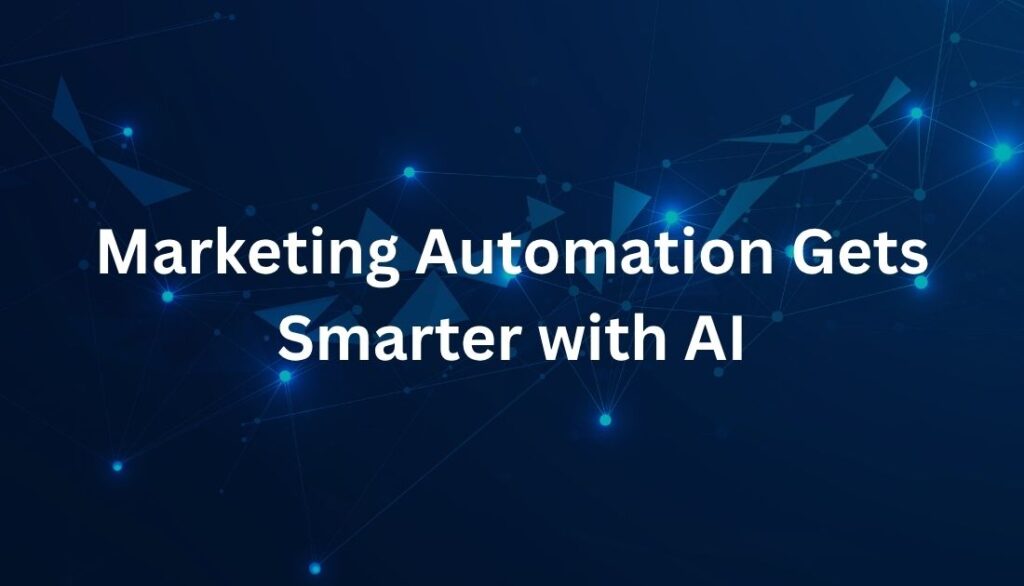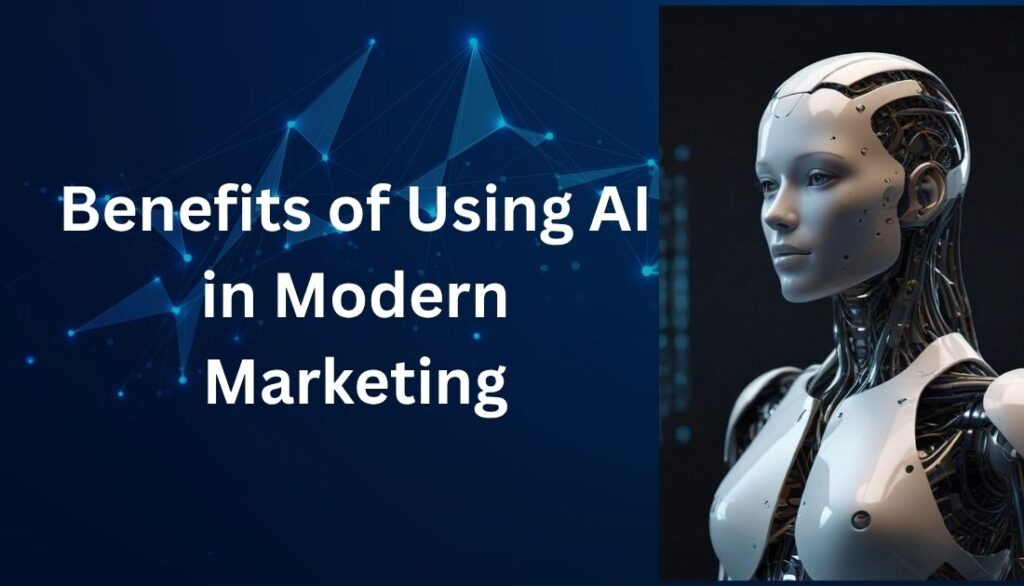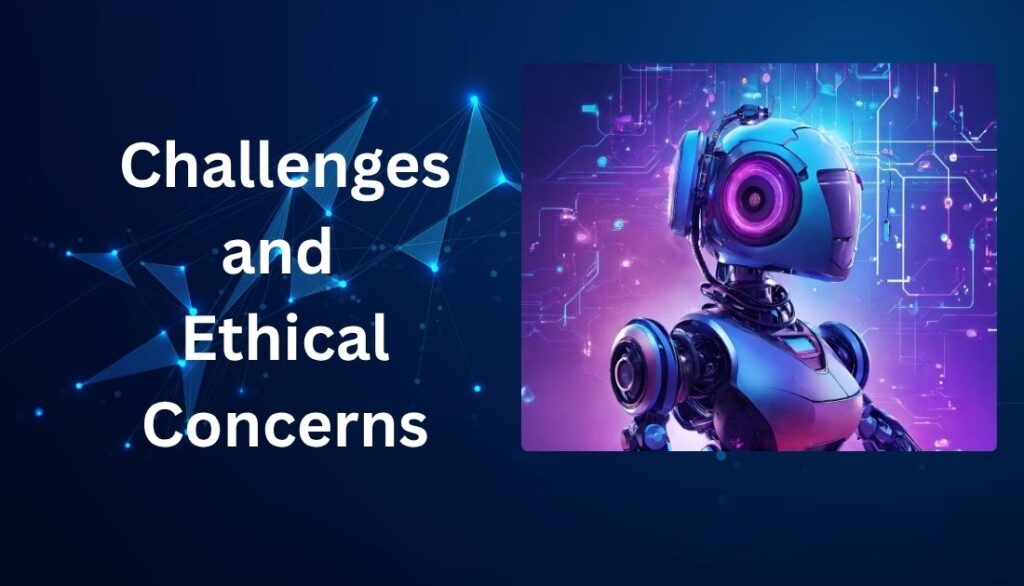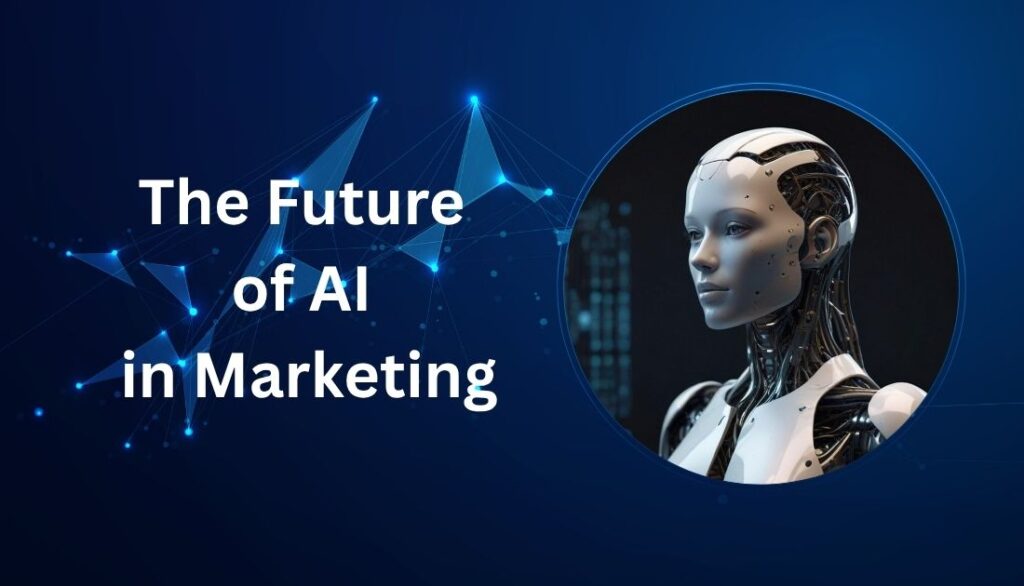Introduction: What Is AI in Marketing?

In today’s digital-first world, artificial intelligence (AI) is no longer just a futuristic buzzword — it’s a practical tool that’s transforming how businesses market their products and services. From analyzing huge amounts of data to automating repetitive tasks, the role of AI in modern marketing is powerful and expanding rapidly.
If you’re wondering what AI in marketing really means, here’s the simple version: AI uses smart algorithms and machine learning to process data, learn patterns, and make decisions with minimal human intervention. For marketers, this means better targeting, personalization, and efficiency than ever before.
Understanding Consumer Behaviour Through AI

One of the biggest advantages of AI in marketing is its ability to understand consumer behavior at a deep level. AI-powered data analysis tools can track how customers interact with your website, social media, and ads.
Predictive analytics helps marketers know what customers are likely to buy next. For example, Netflix suggests shows based on what you’ve watched, while Amazon recommends products tailored to your shopping habits. This level of personalization keeps users engaged and boosts conversions.
Popular AI Tools Used in Marketing Today

Modern marketers have access to a wide range of AI tools that simplify daily tasks and boost results:
- Chatbots: Tools like Drift and Intercom provide instant customer support 24/7.
- Content generators: Jasper AI, Copy.ai, and ChatGPT help create blogs, ads, and social media posts faster.
- Programmatic advertising: Google Ads’ Smart Bidding uses AI to optimize ad spend in real-time.
- Email automation: Tools like HubSpot and Mailchimp use AI for segmentation and predictive sending.
- Sentiment analysis: AI tools monitor online conversations to gauge public opinion about a brand.
These tools help businesses of all sizes compete smarter, not harder.
AI’s Impact on Content Marketing

Content remains king in digital marketing — but creating it consistently can be challenging. That’s where AI steps in.
AI content tools help marketers:
- Generate topic ideas based on trending keywords.
- Write blog drafts, headlines, and social media captions.
- Optimize articles for SEO with keyword suggestions and readability scores.
For example, tools like Surfer SEO and Frase analyze top-ranking pages and help you create better, more competitive content. However, while AI can speed up content creation, human input is still essential to ensure originality, tone, and emotional connection.
AI in Customer Service and Engagement

Modern customers expect instant responses. AI-powered chatbots and virtual assistants make this possible.
Chatbots can:
- Answer FAQs 24/7.
- Guide users through purchases.
- Collect feedback and customer data.
Brands like HDFC Bank, Myntra, and Flipkart use AI chatbots to handle thousands of customer queries daily, improving customer experience while reducing workload on human agents.
AI-Powered Advertising and Personalization

AI is revolutionizing digital advertising by making it smarter and more personalized. Programmatic advertising allows marketers to buy ad space in real time, targeting specific audiences based on behavior, location, and interests.
Dynamic ads adapt automatically to user behavior. For example, if you check out shoes on an e-commerce site, you may see ads for those same shoes on social media later — that’s AI retargeting at work.
Email marketing also benefits from AI personalization. Tools segment audiences and send tailored emails at the best time for each user, increasing open rates and conversions.
Marketing Automation Gets Smarter with AI

Marketing automation platforms like HubSpot, Salesforce, and Marketo are integrating AI to make workflows even smarter.
AI can:
- Score leads automatically based on user actions.
- Predict which leads are ready to convert.
- Automate follow-up emails and messages.
This saves time and ensures no opportunity slips through the cracks, ultimately improving ROI.
Benefits of Using AI in Modern Marketing

So, why should businesses adopt AI in marketing? Here are the key benefits:
✅ Better decision-making: AI analyzes massive datasets faster and more accurately than humans.
✅ Higher ROI: Smarter targeting and automation mean you spend less to get better results.
✅ Personalization: Tailor content, ads, and offers to individual users.
✅ Time savings: Automate repetitive tasks like email campaigns, social posts, and reporting.
✅ Real-time optimization: AI learns and adjusts campaigns on the go for maximum impact.
Challenges and Ethical Concerns

Despite its benefits, AI in marketing also raises important challenges:
⚠️ Data privacy: Collecting and analyzing consumer data must comply with privacy laws like GDPR.
⚠️ Algorithm bias: AI systems can unintentionally favor certain groups over others.
⚠️ Loss of human touch: Over-relying on AI may reduce the creativity and emotional connection only humans can offer.
Marketers must strike the right balance — using AI for efficiency while keeping human oversight for ethics, empathy, and innovation.
The Future of AI in Marketing

The role of AI in marketing will only grow in the coming years. Trends like generative AI, hyper-personalization, and voice search optimization are shaping the future.
To stay ahead, marketers should:
- Experiment with AI tools now.
- Train teams to work alongside AI, not against it.
- Keep up with AI ethics and data privacy best practices.
Final Thoughts
AI is not here to replace marketers — it’s here to empower them. By embracing AI, businesses can work smarter, connect better with their audience, and grow faster in the competitive digital landscape.
Ready to future-proof your marketing? Start exploring AI tools today and unlock new possibilities for your brand!
